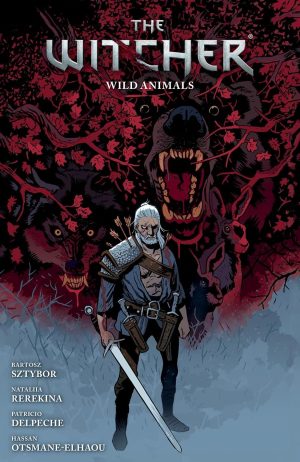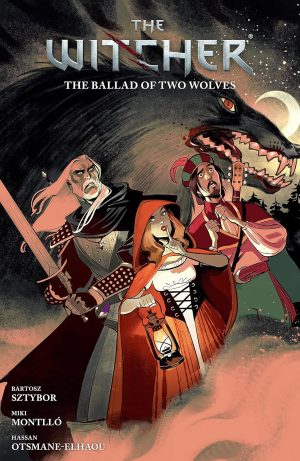The Slings and Arrows Guide is intended to be the ultimate online reference source for graphic novel readers, offering informed critical comment, but aimed at a general audience.
Reviews should be between 250 and 600 words in length, informative, accurate and fair-minded, and the book awarded a star rating according to the criteria outlined below.
At it’s most obvious, a review should contain a brief plot synopsis without giving too much away, and mention the primary creators involved, assessing their contribution. Most reviewers approach a review as a writer, but graphic novels are a fusion of writing and art, so don’t neglect the artwork. It’s not enough just to note something as great or poor. You have to explain why.
When writing reviews consider the reader. A graphic novel review site may be a niche slot, but it’s accessible to all. A base level of knowledge can be assumed (everyone knows Batman and Spider-Man), but when reviewing volumes from a series include a brief note about the premise as someone may not have searched for Sandman Vol. 1. For the sake of consistency it would be preferable if all issues of a related series are reviewed by a single person, although some runs are so long exceptions will be made. For superhero titles related graphic novels would be all those by a single writer, such as Brian Michael Bendis’ run on Daredevil or Grant Morrison’s run on JLA. It would also be expected that you’d cover the same material over assorted packaging of it. For instance, the Death of Captain America is available in three graphic novels of that name (vols 1-3), an omnibus edition collecting all three, and an omnibus of Ed Brubaker’s work on Captain America. The only exception is if a book is retitled containing exactly the same content, when it’s acceptable to run the same review under two titles. An example would be Deadpool: Dead, which later became Deadpool by Daniel Way Vol. 4. Use a different featured illustration, though.
It would be useful if you’re reviewing volumes of a long-running title that you’re at least familiar with the highpoints in order to provide a qualitative judgement of what you’re reviewing. Enthusiasm counts, though, and it’s not reasonable to expect anyone to have read 50 years + of Spider-Man, just don’t make excessive claims. If reviewing much-loved material familiar from childhood please try to assess it by contemporary standards, putting aside your own fondness.
The text should note the primary creators, and what they bring to the project. Mention if the book is part of a continuing series and the titles of the preceding and following books (in a relatively subtle manner). Unless absolutely essential, avoid spoilers. If a critical point demands revelation, then flag the review upfront. We have a spoiler tick box on the submission template for this.
By all means base your reviews on the comics collected in a graphic novel rather than the book itself, or their digital equivalents, but note extras and differences in the collected material.
While there’s room to re-evaluate highly regarded material, this isn’t the place to work out grudges or air blindspots. A belief that Watchmen is over-rated genre tat, no better than an average issue of Superman, indicates it’s not the title you should review. This is not the place for nitpicking about minor continuity errors either, as reviews should be accessible to a general audience who wouldn’t understand or care. Books collecting runs of issues should be reviewed as books, with no need to reference the issues in which material was originally presented. Don’t be overly whimsical, or gratuitously bitchy about creators or content. It’s enough to convey an informed opinion.
Don’t try to make your reviews look smarter by making authoritative statements about matters if you don’t really know what you’re talking about. This is surprisingly easy to do. Resist temptation to include background events sourced from gossip columns.
You are responsible for the content of your reviews. If they’re consistently found to contain errors then all your reviews will be removed. If any of your reviews are discovered to plagiarise content all your reviews will be immediately removed.
For assorted reasons your reviews may be edited, modified or amended, and editorial decision is final. Any major changes will be discussed with the reviewer. The minimum and maximum word limits of 250 and 600 are non-negotiable.
Writing style should be your distinctive voice, but there are a few elements to avoid. Don’t use the first person (‘I consider…’, ‘My opinion is…’) and rein in those inflated adjectives. No gratuitous use of specialist terminology, foreign phrases or jargon. Avoid phrases once quite witty but now run into the ground (been there, seen that, bought the t-shirt), and bear in mind that contemporary cultural references rapidly date. Don’t be too erudite, using words most people wouldn’t know. We’d like a general audience. Avoid colons.
In terms of style your software spell check and dictionary should be set to English (UK) rather than English (USA) so that the likes of colour, licence, realise, arse, plough, sceptic and artefact are used in preference to color, license, realize, ass, plow, skeptic and artifact. The first letter of all titles should be in title case with only articles left in lower case, so it’s not Mystery In Space and Challengers Of The Unknown, but Mystery in Space and Challengers of the Unknown. Spider-Man is hyphenated, not ‘Spiderman’. Furthermore comics are comics, not books or comic books. Graphic novels are books, and the term can equally apply to original material or a collection. When first mentioning a creator in a review give their full name. Thereafter surname is fine. Titles of other graphic novels, films, books, TV shows etc should be in italics, but story titles should be within single apostrophes. Please don’t italicise quotes, which should be within double quotation marks. Numbers to twenty are spelled out, 21 and above appear as numerals unless multiples of ten (eighty, two hundred, thousand). If you’re unsure about grammatical niceties don’t worry as your text will be subbed, but if you’re interested, thewriter.com has a common sense style guide.
Each book should have a star rating as per the following guidelines:
0 stars – Truly wretched or jaw-droppingly offensive
1 star – Hardly any redeeming qualities
2 stars – Professional creators on autopilot
2.5 stars – Average by current standards. Good writing let down by poor art and vice-versa.
3 stars – Slightly better than average by present day standards.
4 stars – A decent, recommendable product
5 stars – Really top notch. For its genre and type it’ll be difficult to find better.
The star values should be accorded via assessment of what the book is attempting to achieve and comparison with other similar product. That enables five star superhero graphic novels to sit comfortably alongside five star reviews of works of greater literary value. Don’t upgrade the best of a run by default, and a way of assessing books featuring long-running characters is to decide the best and poorest volumes featuring that character and how the book you’re reviewing ranks against them on a sliding scale.
If reviewing multiple volumes of a series, don’t automatically allocate the same rating to each book. Gladstone released 50 volumes collecting the Carl Barks shorts for Walt Disney’s Comics & Stories, some are Barks at his absolute peak, some are Barks finding his way, and a few towards the end are the work of someone struggling for ideas. If reviewing omnibus editions of material previously reprinted in other collections take the star ratings of those collections into account. The omnibus rating should have a star rating that averages those accorded the individual volumes unless there is significant extra content that would weigh the rating as higher or lower.
There has been consideration of whether the star rating should encompass book production, but it should only refer to story content. Feel free, however, to extol luxury production values in the body of your review, or conversely the poor production standards of some prestige projects.
Finally, we don’t rule out the Slings & Arrows site carrying advertising at some point, but it so this will not be at the cost of compromising content. Universal integrity is more important than any short-term gain from plugging a hot product, so please don’t tailor your reviews to what you perceive as commercial compromise.




